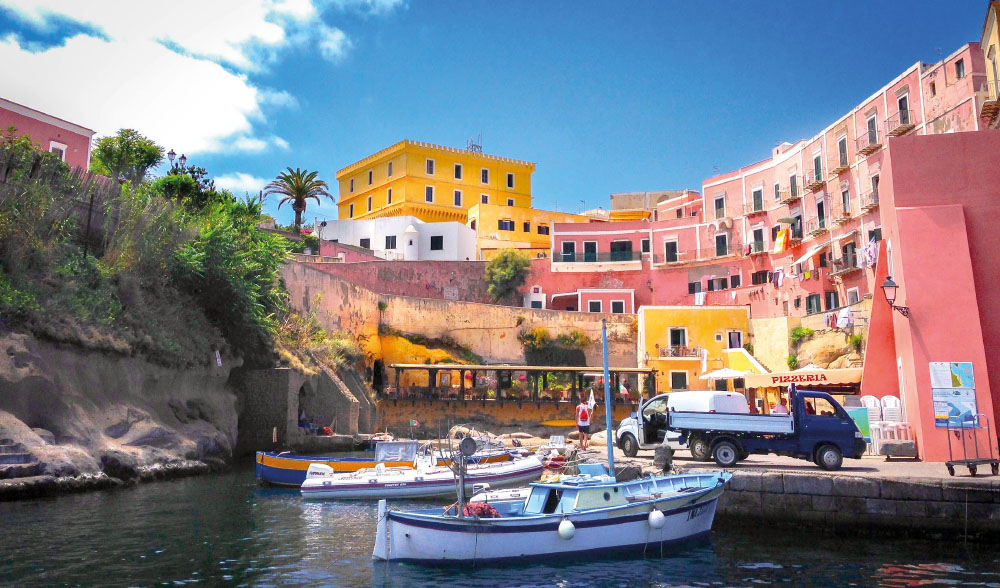OVERVIEW
EC2 Camp Ventotene
“EC2 Camp Ventotene” è una simulazione del Consiglio dell’Unione Europea, che coinvolge studenti provenienti da tutta Italia e dall’estero. Cosa farai? Rappresenterai un paese membro dell’Unione Europea e sarai chiamato a difenderne valori, progetti e interessi. Insieme ai tuoi compagni dibatterai un topic di rilevanza internazionale, medierai le diverse posizioni e favorirai la stesura di una Raccomandazione ufficiale. EC2 Camp Ventotene è un’esperienza appassionante alla scoperta dei valori e dei principi europei, in uno scenario dinamico e internazionale.

COME SI SVOLGE
EC2 Camp Ventotene si articola in tre fasi:
1. Formazione
Guidato dallo staff didattico di United Network, scoprirai struttura, valori e missione delle principali istituzioni europee, approfondirai il topic oggetto di dibattito, il contesto relativo alla posizione del Paese che rappresenterai e imparerai come padroneggiare le regole di procedura. Questa prima fase si suddivide in due momenti principali: il briefing con lo staff UN; lo studio individuale per prepararsi alla simulazione online.
2. Simulazione online
Durante le 3 giornate di simulazione online agirai come un vero rappresentante europeo: insieme ai tuoi compagni terrai discorsi, lavorerai come mediatore e redigerai una raccomandazione finale, frutto del confronto e della discussione delle sessioni di lavoro. Lo staff didattico di United Network modererà il dibattito e ti guiderà durante tutta la simulazione. Potrai scegliere se prendere parte a una simulazione in lingua italiana oppure in lingua inglese.
3. Simulazione a Ventotene
Al termine della simulazione online, gli studenti più meritevoli prenderanno parte a una seconda simulazione di quattro giorni sulla suggestiva Isola di Ventotene. Lo scenario naturalistico e il profondo valore simbolico dell’Isola, capitale “ideale” dell’Europa, ti permetteranno di ripetere l’esperienza della simulazione e di esplorare un luogo simbolo della storia europea. Verranno realizzate due simulazioni: una in italiano e una in inglese.
La preparazione
Per affrontare al meglio questa esperienza, durante le settimane antecedenti la simulazione parteciperai a un corso di formazione. Tutte le nostre lezioni sono interattive e si svolgono in lingua italiana o in lingua inglese (in funzione della lingua prescelta per il progetto). Le lezioni saranno tenute dai nostri docenti esperti, giovani laureati e dottorandi di ricerca che da anni trasmettono alle nuove generazioni i saperi legati alle istituzioni internazionali, alla cooperazione e al confronto diplomatico.

L'ISOLA DI VENTOTENE
TEMATICHE
I topic affrontati dalle commissioni verranno scelti tra le tematiche cardine dell’Unione Europea.







Iscriviti
EC2 CAMP - FAQ
Le risposte che cerchi
Possono prendere parte a EC2 Camp, Ventotene tutti gli studenti iscritti alle scuole superiori italiane. Per partecipare alla simulazione non sono richiesti attestati di lingua inglese e non è previsto il superamento di una prova di idoneità. Gli studenti potranno iscriversi entro…
È possibile iscriversi nel modulo d’iscrizione presente in questa pagina. La partecipazione degli studenti alla simulazione è a numero programmato. Gli studenti che non completeranno l’iscrizione nei tempi richiesti saranno collocati in lista d’attesa.
Non è prevista alcuna quota di partecipazione. Il progetto è interamente cofinanziato da United Network Europa e dal Dipartimento per le Politiche Giovanili.
La simulazione online e la simulazione in presenza a Ventotene prevedranno sessioni di lavoro in lingua italiana e in lingua inglese, a scelta dello studente.